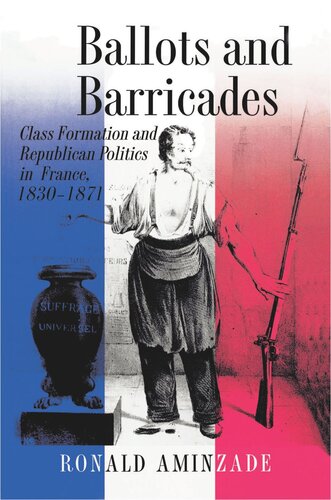

Most ebook files are in PDF format, so you can easily read them using various software such as Foxit Reader or directly on the Google Chrome browser.
Some ebook files are released by publishers in other formats such as .awz, .mobi, .epub, .fb2, etc. You may need to install specific software to read these formats on mobile/PC, such as Calibre.
Please read the tutorial at this link: https://ebookbell.com/faq
We offer FREE conversion to the popular formats you request; however, this may take some time. Therefore, right after payment, please email us, and we will try to provide the service as quickly as possible.
For some exceptional file formats or broken links (if any), please refrain from opening any disputes. Instead, email us first, and we will try to assist within a maximum of 6 hours.
EbookBell Team

4.3
8 reviewsUsing class analysis to understand the dynamics of political conflict in mid-nineteenth-century France, Ronald Aminzade explores political activity among workers in three industrialized French cities--Toulouse, Saint-étienne, and Rouen. A comparative case-study design enables the author to analyze how the complex interaction between industrialization, class relations, and party development fostered revolutionary communes in some cities but not others. Challenging traditional theories of industrialization and revolution, Aminzade innovatively uses narratives to provide a historically grounded analysis of the failed municipal revolutions of 1871 and the triumph of liberal-democratic institutions in France.
In each of these cities, distinctive patterns of capitalist industrialization and class restructuring intersected with shifting political opportunities at the national level to produce local republican parties with different ideologies, strategies, and alliances. Focusing on changing relations between republican parties and male workers, whose identities and economic standing were in transition, Aminzade examines struggles within local parties among liberal, radical, and socialist republicans. The outcome of these struggles, he argues, shaped the willingness of workers to embrace the ballot box or take to the barricades.